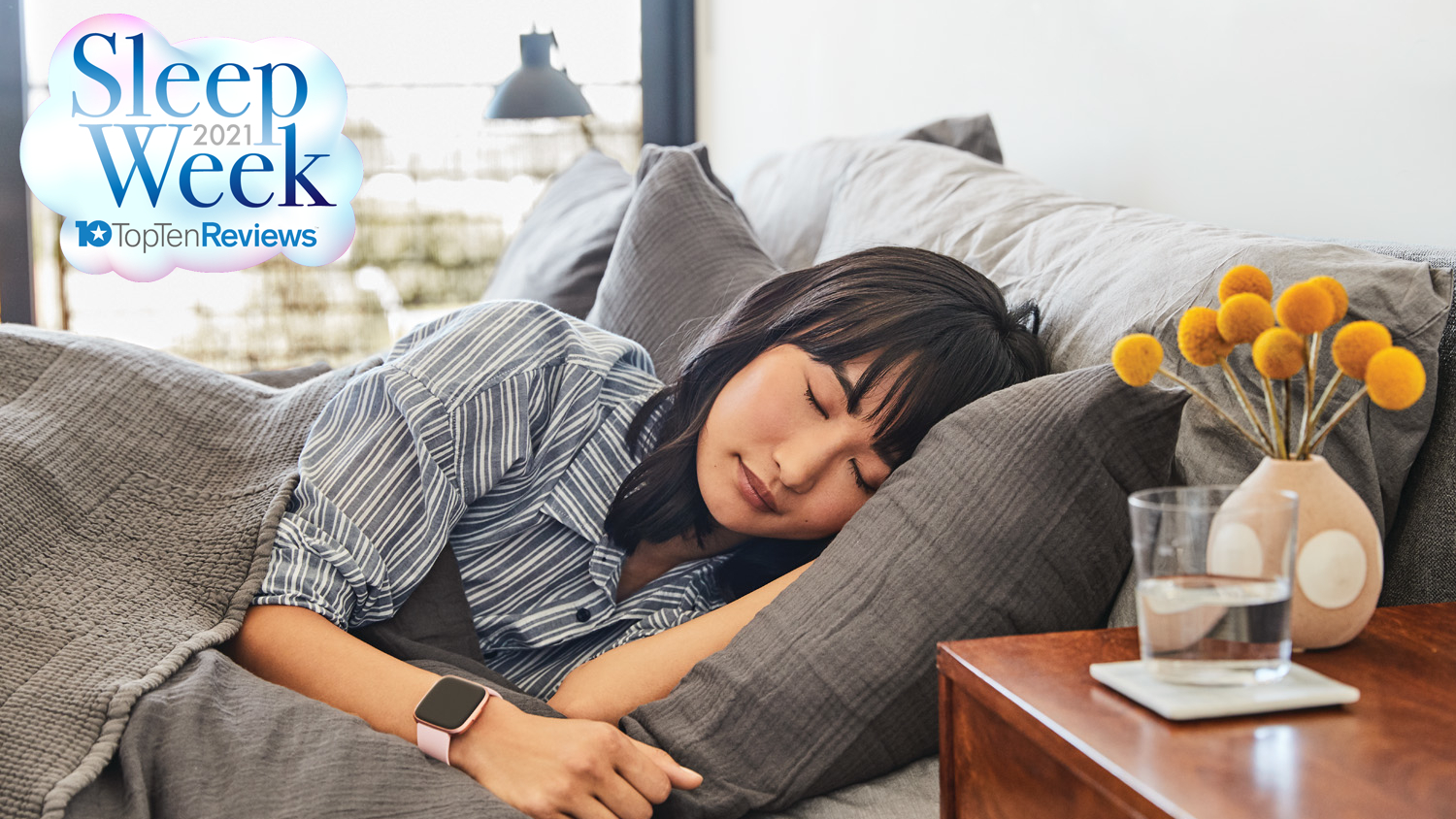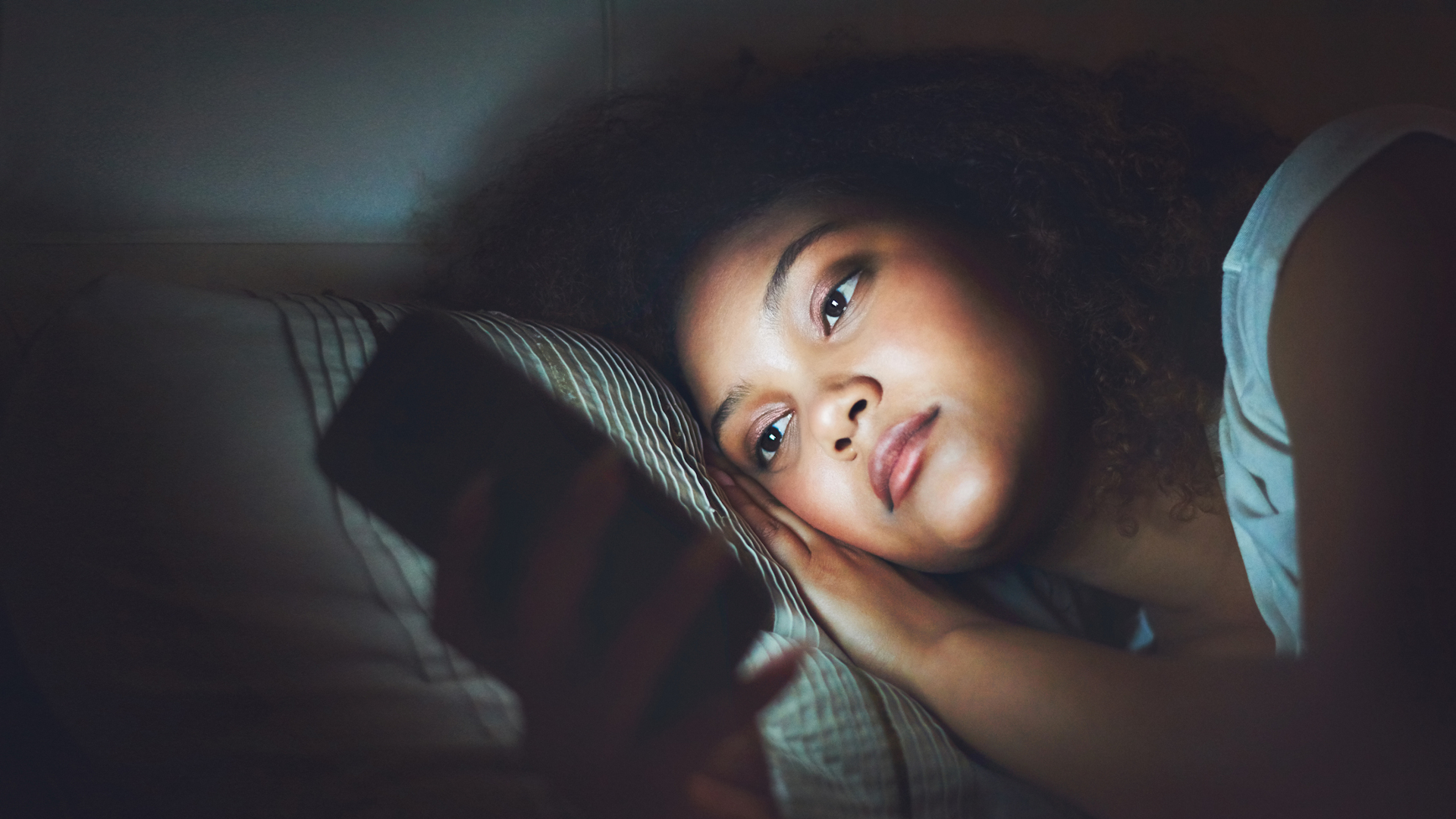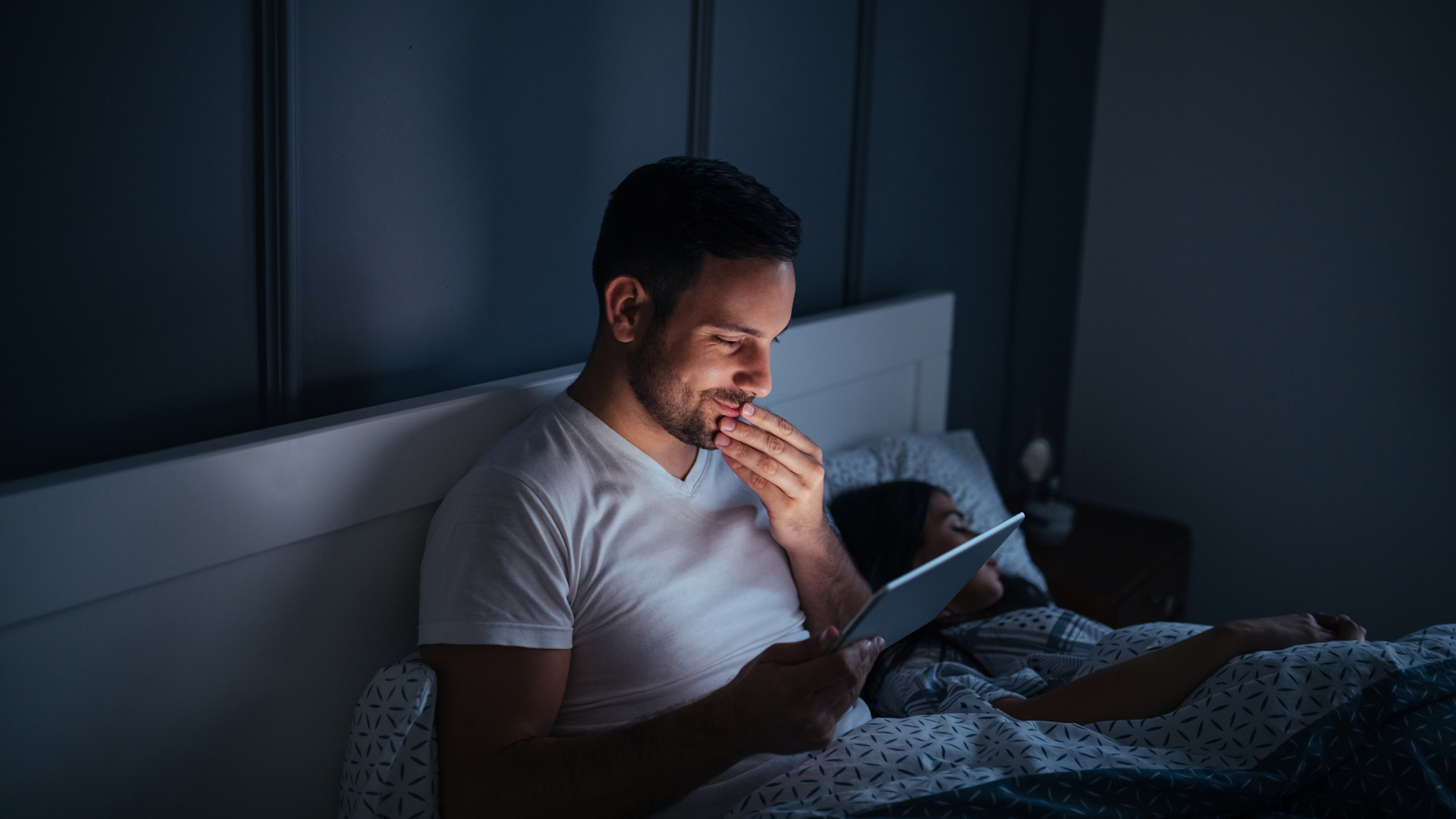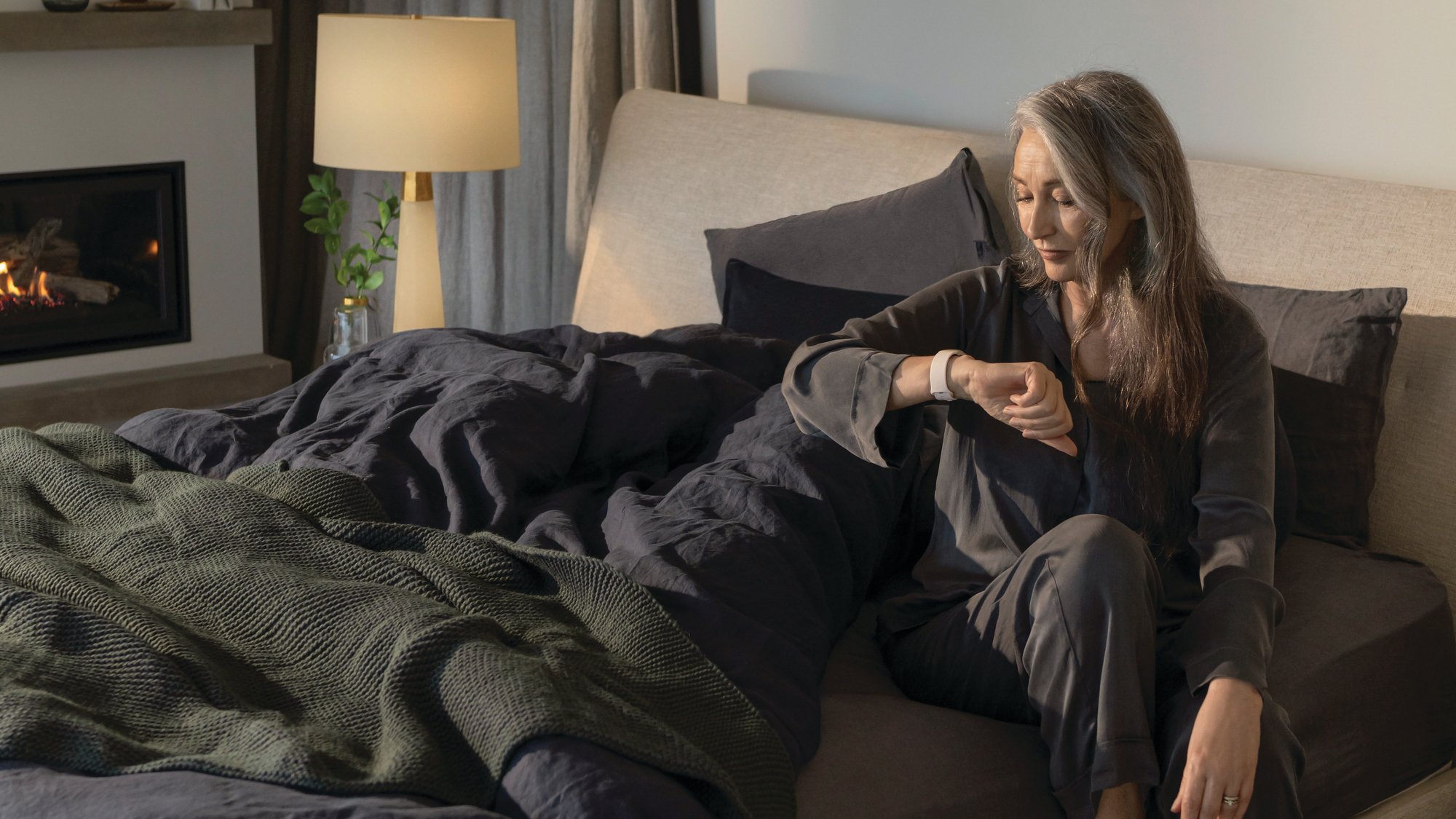Can bedtime friendly technology help your sleep routine?
It's Sleep Awareness Week, so we're digging into how technology can help, or hinder, your sleeping pattern.

Sign up to receive the latest news, reviews, buying guides and deals direct to your inbox
You are now subscribed
Your newsletter sign-up was successful
Technology can often be seen as the enemy of a good night's sleep, but in truth there is a lot of sleep friendly technology out there that can help improve your sleep regime. To celebrate Sleep Awareness Week 2021, we’ve been searching high and low for the best sleep friendly tech to help you get a good night’s rest.
Rather than just throw everything at you, we’ve done our due research and weighed up the pros and cons of these sleep friendly devices and services to help you make an informed decision. There is still much that we still don’t understand about why is sleep important (we’re not even really sure why people and animals sleep at all), so sleep friendly technology is a constantly evolving space.
Cut down your tech usage at night
OK, so we’re cheating here but it’s a sad truth, even for the most ardent tech junkies like us that tech and sleep just aren’t good roommates. You can use all the low light modes and blue light blocking glasses you like, but at the end of the day you’re going to get a better night's sleep if you ditch your smartphone for a few hours before you go to bed.
We’re all guilty of it, whether it’s watching TV or playing on a video games console right up until the moment we decide to hit the hay, and then you lay awake for ages, unable to get to sleep because your mind is still racing.

Now with all that said, you’re a tech head and you’re still here. So, if you are going to keep using your technology into the evening, there are some steps you can take to help mitigate its negative effects on your sleeping patterns. And in some cases, tech can actually help you get into a more healthy and regular sleeping cycle.
Night mode on screens? The jury is still out
If you are going to use your phone in the evening (and heavens forbid, use it in bed) then there are steps you can take to help mitigate the amount of blinding light you’re firing into your eyeballs, right? Almost all smartphones these days have something called Night Mode, which is a mode that turns down the brightness of your screen, while also reducing the amount of blue light these devices give off. This sounds like a no brainer, but the research is still divided on how much these modes are helping.
The idea behind cutting down blue light is simple. Blue wavelengths of light have been shown to boost your responsiveness, alertness, reaction times, and mood. These are all good things during the day, but research has shown that these wavelengths of light are disruptive at night when your brain is trying to wind down. So, it makes sense that a Night Mode on devices like smartphones and tablets would try to cut down the amount of blue light they emit.
Sign up to receive the latest news, reviews, buying guides and deals direct to your inbox

There is actually some debate among scientists as to whether night modes on smartphones do actually help though, as the technology is still rather new, as is the underlying thought process behind it. While some studies have shown that blue light has a negative effect on your sleeping pattern, others, like this recent study in Current Biology have noted that it is actually yellow light, not blue light, that has the largest effect on circadian rhythms during tests on mice.
Since there is some debate here, we’d recommend trialing Night Mode and seeing how your sleeping pattern changes (if at all) as a result. If things get better, you’re golden, but if you don’t see any improvement then maybe switch back to normal mode and just turn down the brightness on your devices at night. If you still have trouble sleeping, then try ditching your device an hour or so before bedtime, which is what most sleep doctors would recommend anyway.
Blue light blocking glasses
Another way to block out blue light and protect your eyes is with blue light blocking glasses. Everything we just said around Night Mode on your phone also applies to these space age glasses too.
Blue light glasses can be a great way to reduce the amount of blue light you’re exposing yourself to in your day to day life, especially if you’re working from home in front of a computer screen all day, but we’re not sure they’re going to be the best option if you’re looking to improve your sleeping routine.
You’re better off tackling the sources of blue light in your bedroom at night, rather than trying to filter it out with a pair of glasses. In fact, the American Academy of Ophthalmology goes one further and says that “There is no scientific evidence that the light coming from computer screens is damaging to the eyes. Because of this, the Academy does not recommend any special eye wear for computer use”.
Reading in bed? Kindle versus physical books by lamplight
Screens aren’t the only lights keeping you awake at night. Some people jump straight into bed and plunge themselves into darkness, but many of us stay up and read to help send ourselves off to the land of nod.
If you are still reading physical books when you go to bed, then you’re going to be using a bedside table or other light source. There are plenty of options out there when it comes to dimmable lamps which can be manually adjusted to give you just enough light to read by, without lighting up the whole room. This will make it easier for you to transition into sleepy time mode. Yes, sleepy time mode is the official term.

Likewise, if you’re using an ereader like the Amazon Kindle, make sure you have the brightness settings turned down a little. Don’t make it hard to read, or you’ll end up giving yourself eye-strain, but you don’t need the same level of brightness as you do during the day when your screen is competing with external glare.
As we make clear in our Kindle vs Fire article, we think that dedicated e readers are 100% the way to go if you’re a serious reader as their specialized screens cause less eye-strain then tablet screens, but if you are reading from a tablet then you can still turn the brightness down to help your eyes adjust to darkness before bed.
Track your sleep routine with smart watches
Up until now, we’ve mainly talked about ways that you can mitigate the negative effects that technology has on your sleeping pattern, but it’s not all about damage control. Technology can actually have a straight up positive effect on your sleep regime thanks to the best fitness trackers and smartwatches.
These wearable devices can help you to track your nightly sleeping pattern, letting you know how much sleep you’re actually getting per night. They do this through a combination of heart rate monitoring and motion detection to tell whether you’re awake or asleep. You can use this information to adjust how long you give yourself before you go to bed - if you think you’re getting eight hours per night but in actuality it’s taking you half an hour to actually nod off, then you know you need to go to bed 30 minutes earlier.
The data that these devices give you should be taken with a pinch of salt though. Most fitness trackers and smart watches are pretty good at telling whether you’re awake or asleep, but as our friends over at Live Science point out, you should be much more wary of any device claiming it can determine which stage of sleep you’re in. In an interview with Live Science, Michael Scullin, a post-doctoral fellow at Emory University School of Medicine's Department of Neurology said that "Consumers should not expect that these devices will be able to distinguish between sleep stages because these devices rely on movements, whereas sleep stages are defined primarily by brain activity."

Still, even if the information isn’t 100% accurate, it can be useful for helping you to identify patterns in your sleep cycle and adjust accordingly. If you’re seriously concerned about your sleep health though, these devices are not a replacement for medical advice - please visit your doctor if you’re struggling with sleep related health issues.
ASMR Videos
If you’ve been using YouTube over the past few years, you may have seen the meteoric rise of videos under the label “ASMR”. But what is ASMR, and does it help you fall asleep?
ASMR stands for Autonomous Sensory Meridian Response, which is the very scientific way of describing what amounts to a tingling sensation that runs down your spine. This sensation has been shown to have a calming, relaxing effect. You’ve most likely experienced this type of sensation if you’ve ever had a massage or even had someone brushing your hair, but there are a variety of ways to trigger this response in people.
OK, so what does this have to do with sleep? Should you get someone in to give you a massage every night before bed? Well yes, we’d 100% say do that if you can afford it (or even try a handheld massager). But for most of us, the next best thing is through online videos that are designed to trigger this same feeling in people.
There are thousands upon thousands of ASMR videos out there, each covering their own unique niche. There is no one best ASMR generating sound out there - it’s unique to each individual and what they happen to find relaxing. For some people it’s the sound of gentle waves on the shoreline, for others it’s the sound of rain falling outside your window. Many people also find a soothing, calming voice talking to them helps them achieve this state.
It might sound a bit like magic, but the underlying science here is extremely simple - relaxing things help to relax you, causing a release of chemicals (Endorphins, Oxytocin, Serotonin, and Dopamine) into your brain that make you sleepy. If you want to try it out, head on over to YouTube and search for an ASMR video that you think you might like.
We particularly enjoy the sound of a roaring fire and rainfall outside, but this is a hugely personal thing. Set the video playing on your device, whether that be a smartphone or laptop, but make sure the screen is off/covered so that the lighting won’t distract you. It’s also smart to make sure your device is set to turn off after a period of time to keep your energy bills down.
Looking for more sleep content? Then take a look at our guides to the best mattress online, or treat yourself to a good pillow for sleeping.
Ian Stokes is the Tech Editor here at Top Ten Reviews. He has extensive experience in tech and games journalism, with work published on IGN, Kotaku UK, Waypoint, GamesRadar, Trusted Reviews, and many more. You'll find him covering everything from smartphones and home computers to 3D printers and headphones. He's also our resident cocktail expert.

